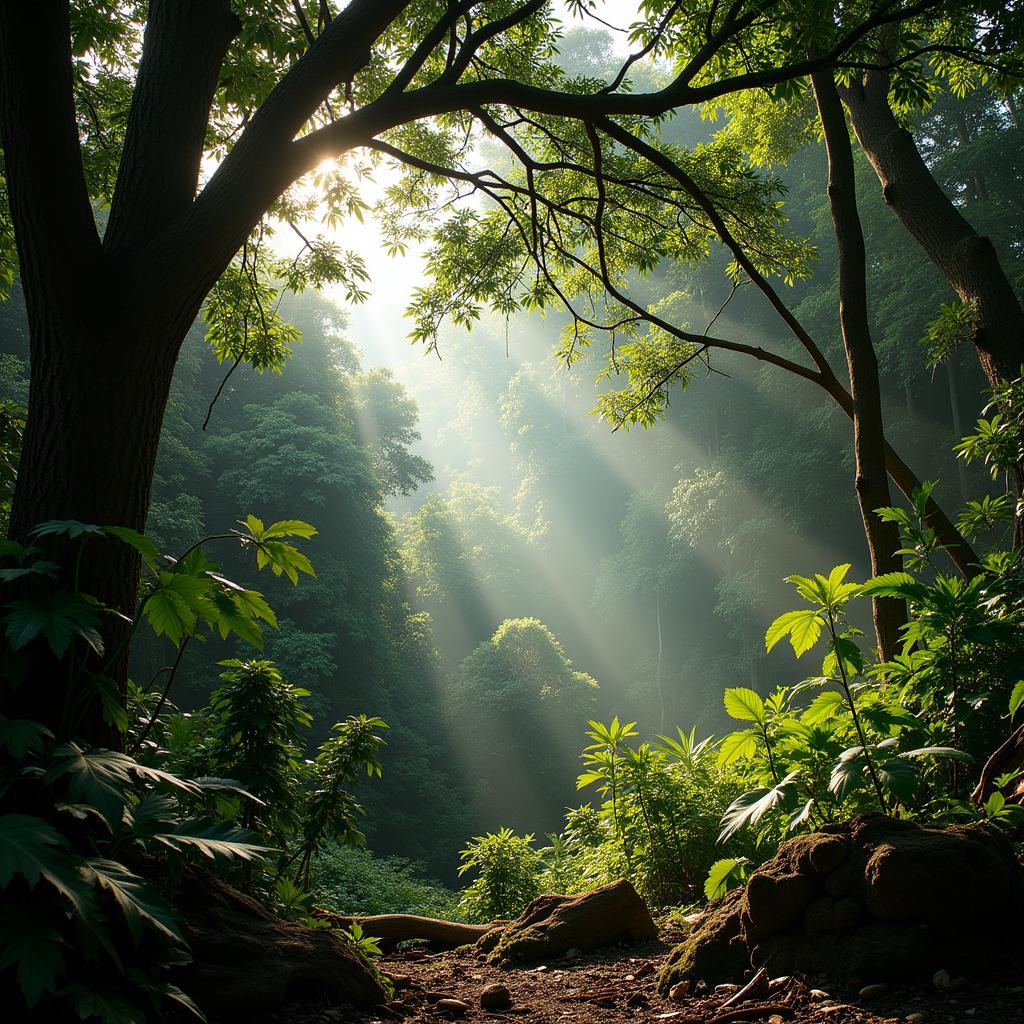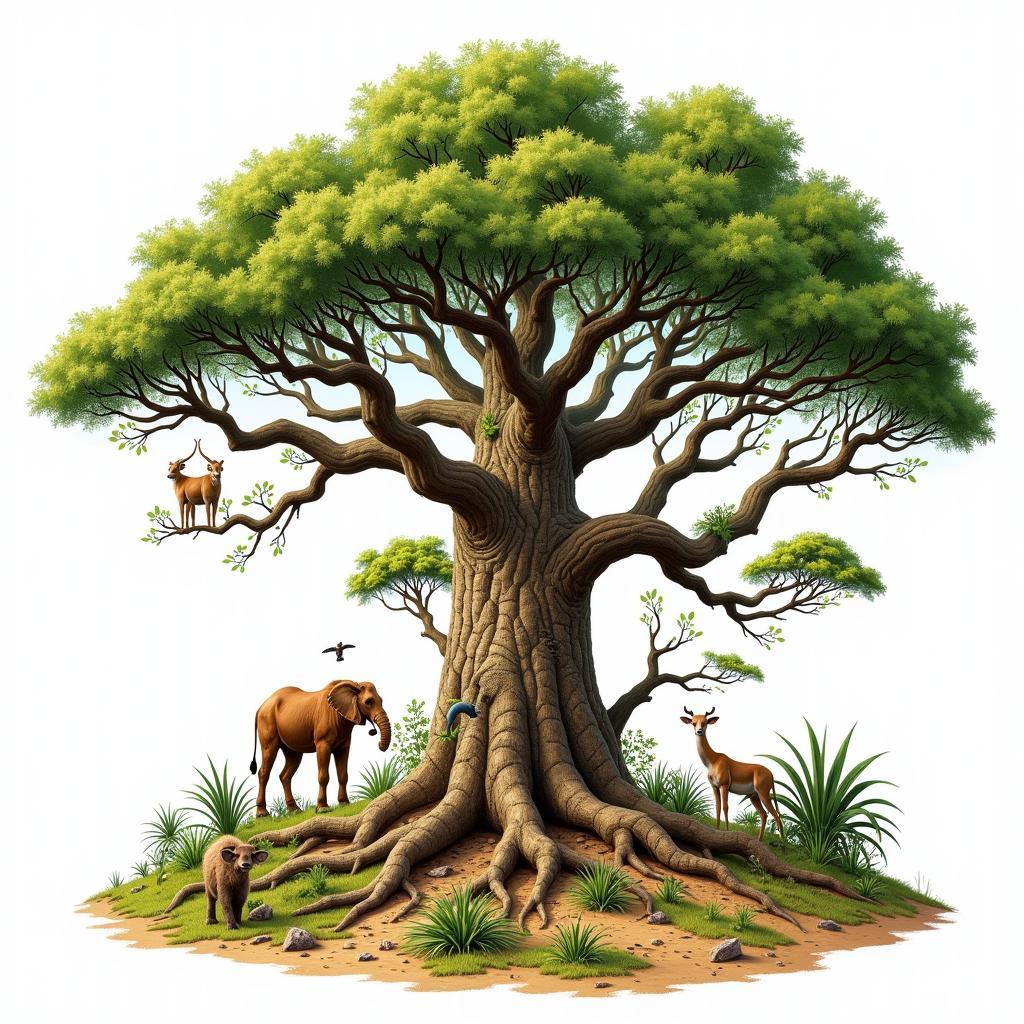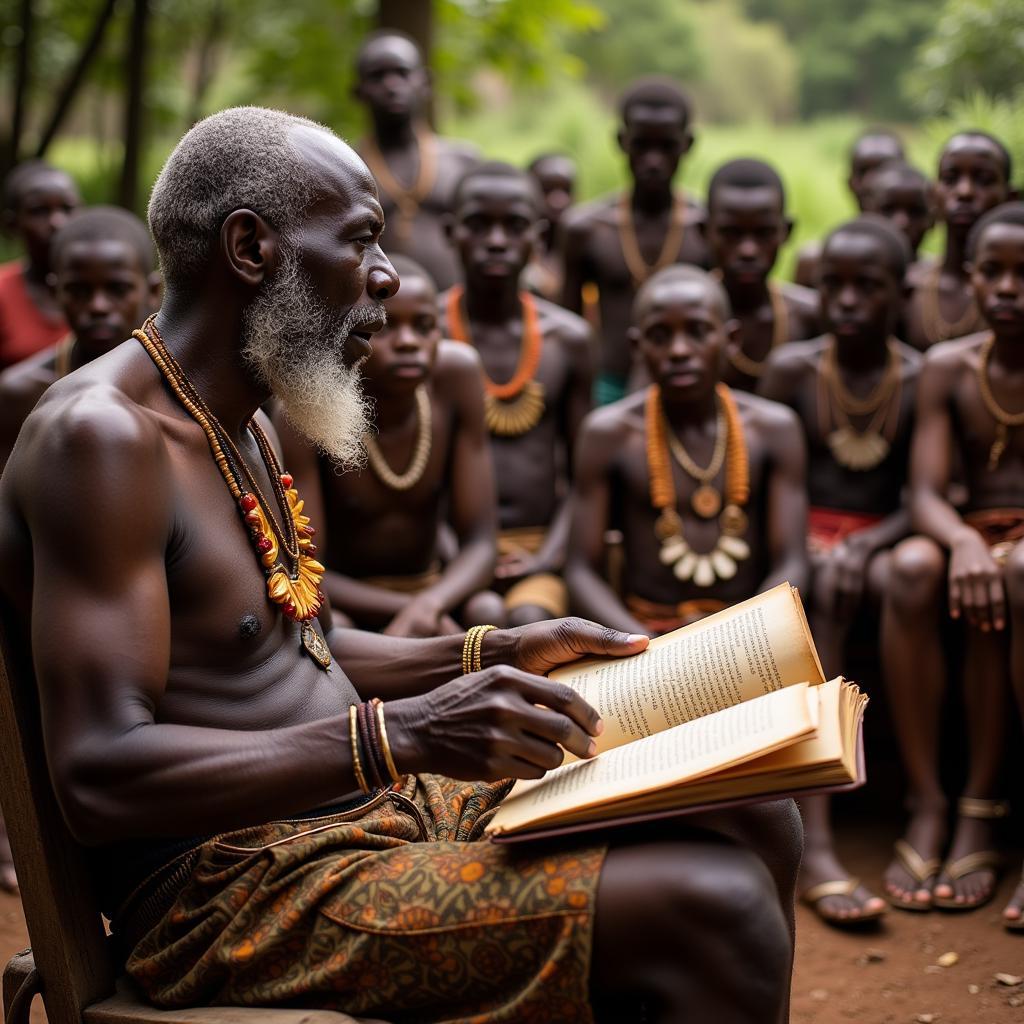Majestic African Forest Trees: A Journey Through Nature’s Giants
Africa, a continent known for its vast savannas and incredible wildlife, is also home to a diverse and fascinating array of forest trees. From towering giants to ancient baobabs, these trees play a vital role in the ecosystem, supporting a rich tapestry of life and providing essential resources for both people and animals. Let’s embark on a journey to explore the captivating world of African Forest Trees.
The Guardians of the Forest: Iconic African Tree Species
African forests boast an incredible diversity of tree species, each with unique characteristics and ecological significance. Here are a few of the most iconic:
- African Mahogany (Khaya spp.): Prized for its durable and beautiful reddish-brown wood, African mahogany is a keystone species in many West African forests. Its towering height and expansive canopy provide shade and habitat for countless creatures.
- African Baobab (Adansonia digitata): Instantly recognizable by its massive, bottle-shaped trunk, the baobab is a symbol of resilience and longevity in the African savanna and dry forests. Its fruits and leaves provide food and traditional medicine, while its hollow trunk can store vast amounts of water.
- African Teak (Milicia excelsa): Renowned for its strength and durability, African teak has been a valuable timber tree for centuries. Its resistance to termites and decay makes it ideal for furniture, flooring, and even shipbuilding. However, overexploitation has led to concerns about its conservation status.
 Dense African Rainforest Canopy
Dense African Rainforest Canopy
The Significance of African Forest Trees
African forest trees play a crucial role in maintaining the ecological balance of the continent. They provide numerous benefits, including:
- Carbon Sequestration: Like all trees, African forest trees absorb carbon dioxide from the atmosphere, helping to mitigate climate change.
- Habitat and Biodiversity: The diverse array of tree species supports a rich tapestry of life, from insects and birds to mammals and primates. Many species rely on specific trees for food, shelter, and breeding grounds.
- Soil Conservation: Tree roots help bind the soil, preventing erosion and maintaining soil fertility.
- Water Regulation: Forests act as natural sponges, absorbing rainfall and releasing it gradually, which helps regulate water cycles and prevents flooding.
Threats and Conservation Efforts
Despite their importance, African forest trees face numerous threats, including:
- Deforestation: Driven by agriculture, logging, and urbanization, deforestation continues to fragment and degrade forests across Africa.
- Climate Change: Rising temperatures and changes in rainfall patterns can impact tree growth, reproduction, and overall forest health.
- Illegal Logging: The demand for valuable timber species like African teak fuels illegal logging, further threatening these trees and the ecosystems they support.
Conservation efforts are underway to protect African forest trees and the invaluable services they provide. These include:
- Sustainable Forest Management: Promoting responsible logging practices that ensure the long-term health of forests.
- Reforestation and Afforestation: Planting trees in degraded areas to restore forest cover and enhance biodiversity.
- Community-Based Conservation: Empowering local communities to manage and benefit from their forest resources sustainably.
Experiencing the Wonder of African Forest Trees
For nature enthusiasts and those seeking to connect with the beauty of Africa, exploring these majestic forests is an unforgettable experience. Here are a few tips for planning your journey:
- Choose the Right Destination: From the rainforests of the Congo Basin to the Miombo woodlands of Southern Africa, each region offers a unique perspective on African forest trees. Consider your interests, whether it’s primate spotting, birdwatching, or simply immersing yourself in the tranquility of nature.
- Travel Responsibly: Opt for eco-friendly lodges and tour operators committed to sustainable practices. Respect the environment and follow guidelines provided by local guides.
Conclusion
African forest trees are not merely silent giants; they are vital components of the continent’s ecosystems, supporting life in countless ways. By understanding their importance and supporting conservation efforts, we can ensure that these magnificent trees continue to thrive for generations to come.
Frequently Asked Questions about African Forest Trees
-
What is the tallest tree species in Africa?
The African mahogany (Khaya spp.) is often cited as one of the tallest tree species in Africa, reaching heights of over 150 feet (45 meters). -
How long can baobab trees live?
Baobab trees are incredibly long-lived, with some estimates suggesting they can live for over 2,000 years. -
Are there poisonous trees in African forests?
Yes, some African tree species, such as the poison arrow tree (Acokanthera spp.), contain highly toxic substances that have been traditionally used for hunting. -
What are some traditional uses of African forest trees?
African communities have long relied on forest trees for food, medicine, building materials, fuelwood, and cultural practices. For example, the shea tree (Vitellaria paradoxa) produces nuts rich in oil used in cosmetics and cooking. -
How can I support African forest conservation?
You can support organizations working in forest conservation, make sustainable choices in your consumption habits (such as choosing sustainably sourced wood products), and raise awareness about the importance of forests.
Need help planning your African adventure or want to learn more about the continent’s captivating cultures? Explore more fascinating articles on our website:
- Discover the fascinating world of African cat names.
- Delve into the powerful narratives of African feminist books and their publishing years.
- Find captivating stories in our collection of African American story books.
For personalized assistance, contact us:
- Phone: +255768904061
- Email: kaka.mag@gmail.com
- Address: Mbarali DC Mawindi, Kangaga, Tanzania
Our dedicated team is available 24/7 to answer your questions and provide support.




